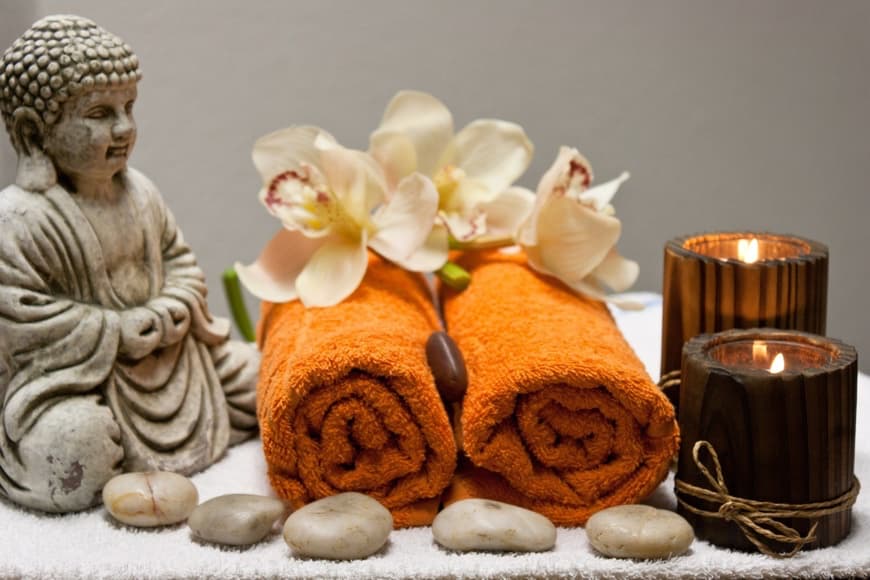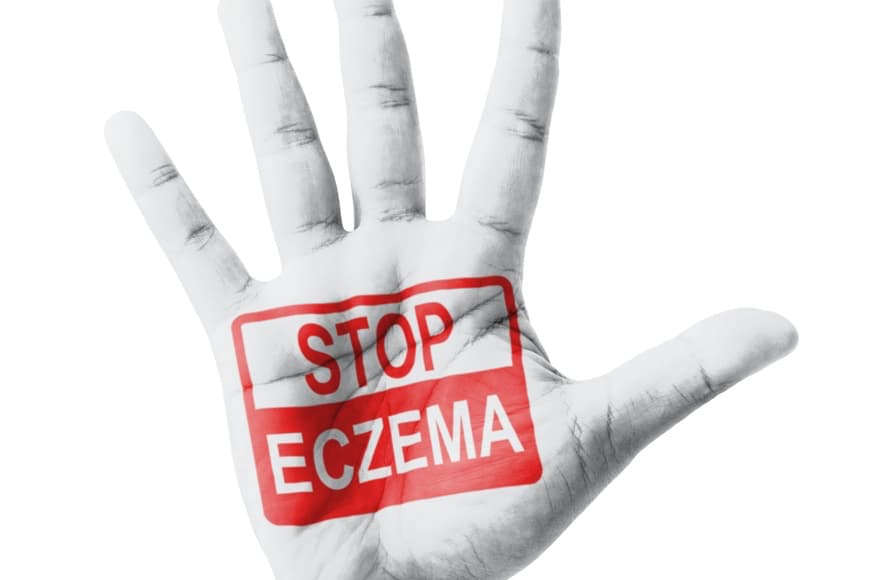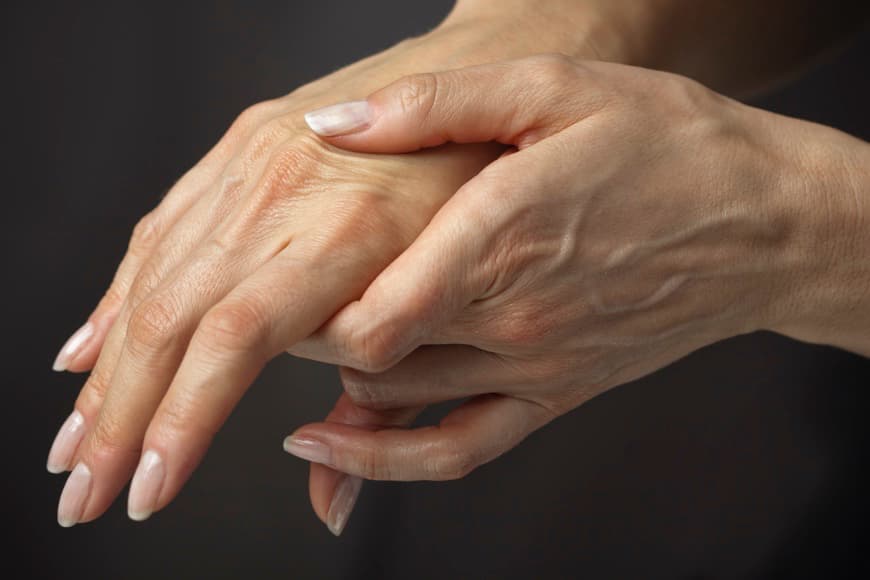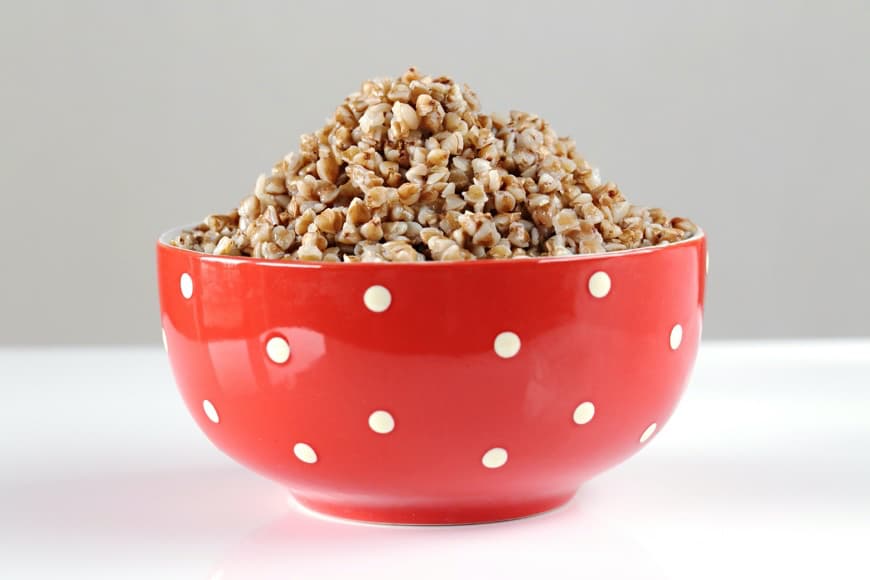WINTER HEALTH NEWSLETTER
Winter is here! The days may be shorter but with the beautiful sunshine, cardinals on the trees, squirrels bustling in the backyard, the decorations on the front yards and Christmas music on the radio stations makes one's heart feel festive, lighter and happier. As the weather gets colder, make sure to bundle up and stay warm and healthy with your loved ones.

We wish you a safe and healthy winter! If it has been over a year since we last saw you, please call us to book your follow up appointment. Enjoy your holidays and we hope to see you soon!
In this newsletter:
- Exciting Massage Therapy News
- Dealing With SAD Naturally
- Treating Eczema With Kindness
- Understanding And Managing Osteoarthritis Naturally
- Holiday Recipe – Delicious Buckwheat Stuffing With Vegan Gravy
EXCITING MASSAGE THERAPY NEWS

Starting January 2020, Miss Rebecca Arris, RMT will be joining our team of massage therapists to help serve you better. Her work as a massage therapist is focused on identifying and healing the root cause of your discomfort. She guides the mind and body back to a balanced state with the understanding that these two halves must be relaxed for healing to take place. Please call the clinic to schedule your 60 or 90 minutes therapeutic or relaxing massage today!
Massage therapy has been shown to improve immune function and energy levels in cancer patients. In a 500-person review study, massage lowered cortisol levels by up to 53%. Experts believe this boost can extend even to those who are simply dealing with the daily pressures of life. A weekly kneading, whether it's a professional massage or simply a back rub from your significant other, can also increase serotonin and other feeling good hormones that may help protect your immunity, as well.
To schedule a visit please call us at (416) 913 4325 (HEAL).
DEALING WITH SAD NATURALLY

Do you find yourself feeling down once the cold weather hits? Lacking energy and motivation? Feeling tired all of the time? You may be affected by seasonal depression if you find yourself cycling through your emotions as the seasons change. What is often simply considered the “winter blues” might actually be a form of depression.
Seasonal Affective Disorder is often connected to the lack of sunlight as it affects our biological clock (circadian rhythm). It can affect children, adolescents and adults. Similar to other forms of depression it can be hereditary.
Most people who are affected by SAD begin having symptoms in the fall and start of winter and fade away in the summer. Some people may also have some depressive episodes during spring or early summer. Symptoms may begin mild and become more severe as the months proceed. Symptoms of season affective disorder include having low energy, feeling depressed daily and for a large duration of the day, losing interest in activities and hobbies, trouble sleeping, difficulty concentrating and a general feeling of sluggishness, hopelessness or agitation. Symptoms specific to winter depression include lack of energy, oversleeping, weight gain, and changes in appetite, including cravings for food high in carbohydrates.
It is normal to have bad days and feel down for moments at a time, however if you are regularly experiencing any of these symptoms it is important to seek naturopathic help. In some cases, SAD can also be linked to underlying physical health problems. In order for our naturopathic doctor to properly diagnose your condition, an assessment may include physical examination and appropriate laboratory testing.
As with other types of depression signs of seasonal affective disorder should be taken seriously. These symptoms may become worse or lead to other complications such as social withdrawal, substance abuse, suicidal thoughts and behaviours and other mental health disorders such as anxiety or eating disorders. You may be affected by SAD for multiple reasons and naturopathic treatments offered at our clinic offers you a chance to find the true causes of these symptoms and aid in healing without the use of life long harsh medications that may cause side effects.
Here are a couple of things that happen during the winter which may affect mood and intensify symptoms of depression:
- When the temperatures are below freezing, most people find it difficult to be active and when we become stagnated our body's functions slow down thus leading us to feel sluggish. Physical activity stimulates the release of healthy chemicals in our bodies such as serotonin and other feeling good hormones.
- Another aspect of winter that affects us greatly are the shorter days and longer nights which indicates that we are less exposed to natural warmth and light from the sun that causes a lack of energy and possibly a vitamin D deficiency.
- The cold weather can also trigger flare ups in our bodies, especially for those with old injuries so you may feel pain or inflammation in the joints and arthritic joints may be more sore and painful.
- The frigid climate breaks down our immune system making us more susceptible to illness and persistent flus that leave us feeling miserable. There is a very strong connection between our mental and physical state, if one is affected the other will be as well therefore there, we must keep a healthy balance.
All of these things, either on their own or all together, can seriously and negatively impact individuals during the winter and lead to seasonal affective disorder.
Our naturopathic doctor will help you determine the root cause or causes of SAD and offer many natural and effective treatment options for SAD (Seasonal Affective Disorder) along with the symptoms based on your assessment. Some of these treatments may include:
- Nutrition Changes
- Light Therapy
- Relationships
- Counselling
- Regular Exercise
- Acupuncture and Massage
- Relaxation Techniques
- Reiki
Nutrition is key for a healthy mind and body. It is important during this time of year that we stay mindful about the food we consume (and do our best to avoid cravings) in order to get our daily doses of nutrients, vitamins and minerals that the body needs to function properly. At our naturopathic clinic we offer scientifically proven diagnostic testing to identify any nutrient and vitamin deficiencies and then provide you with a treatment plan that addresses these deficiencies with quality supplements and foods.
Nutrition Tip from our naturopathic doctor
With the holiday season, alcoholic beverages are flowing like water at get togethers’ and parties. Try to minimize your intake of alcohol over the holidays, as alcohol and caffeine can affect your sleep and make you feel grumpy, dehydrated and there is nothing like that hang over feeling that comes with drinking too much alcohol. Instead opt for lighter cocktails, sparkling or fresh fruit juices and water. Your body will thank you!
Also known as phototherapy, it is one of the most common natural treatments used for seasonal affective disorder. It involves sitting a few feet from a special light box so that you're exposed to bright artificial light within the first hour of waking up each day. The light box is used to mimic natural light which will support healthy brain chemistry linked to mood. This form of treatment can be very effective for SAD under the care of a health care professional. At home, keep yourself exposed to light, open the curtains and if possible, do your work or chores by a window.
Healthy social relationships are so important for our well-being so remember to spend more quality time with your family, friends, and pets. Work on creating or re-building relationships in your life with family, friends and co-workers. Communication is vital to our mental and emotional well-being.
Holidays can be quite hard for a lot of people. Speaking with a health professional may be difficult for some people but it very important for our mental health. Bottling up emotions can disastrous effects on our emotional and social wellbeing long term. We do offer naturopathic counselling and hypnotherapy to aid with navigating through difficult life situations, such as the death of a loved one, divorce, relationship difficulties, school stress and job loss.
Depression is more than an emotional state. The lack of energy we have in the winter will cause us to feel very sluggish and tired and we being to store energy. Burn it off by doing simple exercises or activities to get your blood pumping and maintain healthy circulation.
Acupuncture and massage has shown to help regulate mood swings and balance, alleviate mood issues, increase energy and quality of sleep in individuals suffering from depression as well as reduce blood pressure levels. Talk to our naturopathic doctor to see if these may be good therapies for you.
Regularly practising relaxation techniques and meditation will help to keep the mind and body well balanced. We provide patients with various safe coping strategies, guided relaxation and stress management program.
Reiki is a natural treatment option that is very effective in releasing emotional stress, strengthen an individual’s energy system (aura) and helps in treating anxiety.
TREATING ECZEMA WITH KINDNESS

Eczema or atopic dermatitis is a chronic inflammatory skin condition characterized by dry skin. It is common in children but can occur at any age and it can negatively impact quality of life. Living with eczema can be downright challenging sometimes. For example; stress and anxiety are one of the many triggers that causes inflammation which in turn can cause more stress and anxiety, making it a very difficult cycle to break.
With all of the itching, aggravation and redness, eczema can be very uncomfortable and cause worrying but it doesn't have to take over your life. There are many natural methods available to prevent flare-ups, deal with symptoms and help you live comfortably.
Eczema is frequently seen in infants or children and often clears up by the age of six, however it may also persist into adolescence and adulthood. For most adults’ flare-ups occur periodically thus making it a chronic condition but there are cases where it can clear up for years and come back. Any region of the body can be affected by eczema. Commonly it is found on the sensitive skin in the bends of the arms and legs as well as on the face, eyelids, neck, wrists and ankles.
In infants the eczema flare-ups typically occur on the forehead, cheeks, scalp, neck, forearms, and legs. Eczema often recurs in the same affected areas, but it can migrate to various parts of the body and just as one patch may clear up another may develop.
It is not a contagious condition and there is no exact cause for it, but years of study show that for most types of eczema it is related to a combination of genes and triggers. People with eczema tend to have a highly reactive immune system that when triggered by specific substances such as food and environmental allergens causes inflammation.
Inflammation is the body’s natural reaction to triggers which then causes the raw, dry and itchy sensitive skin. These “triggers” include stress, asthma, hay fever, dry skin, environmental or food allergies, climate, certain drugs and irritants such as metals, detergents, fabrics, lotions etc. Eczema may also be caused by and/or worsened by digestive disorders, vitamins, minerals and essential fatty acid deficiencies, celiac disease and certain physical or psychological disorders.
There are various types of eczema as “eczema” is the general term applied to many persistent skin conditions. Eczema can be hereditary. Healthy skin has the ability to retain moisture and protect you from bacteria and irritants. Some eczema is related to a genetic variation that affects the skin's ability to perform its protective role. A common type of eczema is allergic contact dermatitis caused by allergens and often leads to long-term inflammation. Similarly, there is irritant contact dermatitis which is a direct result to an irritant such as soap, yet this is quite curable by avoiding the cause. Seborrheic dermatitis mainly affects the scalp and presents as dandruff, dry skin with red lesions and large silvery scales which may be traced to the less common psoriasis of the scalp. In infants this dermatitis is known as “cradle cap”.
Symptoms of eczema can range from mild to severe and vary from person to person. It appears as patches of dry, rough and itchy skin, often becoming red, crusting, flaking, blistering, cracking, and welling. In more severe conditions these areas may bleed or ooze. Scratching of these rashes and raised bumps will worsen these symptoms and may cause pain. The chronic itch and scratch cycle that is very common with eczema leads to further complications of the ailment such as neurodermatitis (lichen simplex chronicus), where long-term scratching and irritation of these patches can cause the dry skin to thicken, become scaly and have a texture similar to that of leather. Discoloration may also occur. You should seek immediate medical attention for you, or your child develop a skin infection – look for red streaks, yellow scabbing and pus. Eczema can become very disruptive for some people. The constant flare-ups can become so uncomfortable that it may affect daily activities and sleep.
Listed below are some naturopathic tips to prevent eczema, dry skin and flare-ups:
- Reduce your exposure to the triggers once they've been identified – talk to our naturopathic doctor to assess what these triggers are
- Moisturize (be sure to test lotions on a small patch of skin first to ensure its safety) vegetable-based petroleum jelly may help prevent development on a baby's skin
- Establish a skin care routine that works well for you
- Take shorter showers and use warm water rather than hot
- Dry yourself carefully, and apply moisturizer while the skin is damp
- Use gentle soaps that won't strip the skin of its natural oils
- Learn to recognize stress in your life and how to manage it
- Drink lots of water
- Avoid scratching
- Avoid sudden changes in temperature and humidity
- Dress warmly. The cold climate causes the skin to dry out and begin cracking.
Understanding your skin and how it reacts to environmental substances and what you put inside your body is important in order to prevent flare-ups and damage to your skin. Eczema is a chronic condition that requires chronic care. Living with eczema can be difficult for many but it does not have to hinder you and your lifestyle. Our naturopathic doctor has a lot of experience in treating eczema with natural and effective remedies. If you or anyone in your family is experiencing skin issues and are interested in treating it naturally, call the clinic to schedule a naturopathic consultation.
UNDERSTANDING AND MANAGING OSTEOARTHRITIS NATURALLY

Osteoarthritis is the most common form of arthritis, affecting millions of people worldwide. It is a progressive disease that is often seen in middle-age to elderly people for both men and women. Osteoarthritis is an ailment that occurs from the when the cartilage between joints becomes worn down. It could be developed from other joint malfunctions or complications.
In the human body the regions where two bones connect is called a joint. The ends of these bones are covered with protective tissue called cartilage, it holds the joint together and connects muscle to bone. Cartilage is a tough, firm, rubbery and slippery tissue that’s flexible and softer than bone. Healthy cartilage allows nearly friction-less joint motion as the bones can glide over one another, while the cartilage absorbs energy from the physical movement.
Osteoarthritis is referred to as a "wear and tear" disease that affects the whole joint as well as cartilage. It occurs gradually as this cushioning substance deteriorates. When the cartilage in the joints wears down over time the bone surfaces become pitted and rough and when completely broken-down causes bone to rub on bone. This can cause pain within the joint, irritation in surrounding tissues, and inflammation of the joint lining.
This disorder most commonly affects joints in your hands, knees, hips and spine but it can affect other joints in the body. Symptoms tend to develop slowly and worsen over time. The first signs of arthritis are a frequent cracking and stiffness of joints often experienced in the morning. Other common signs and symptoms include:
- Pain in the joints caused during or after movement. Overtime as the condition progresses the deep aching pain may become chronic.
- Swelling and tenderness caused by inflammation around the joint
- Stiffness most noticeable upon awakening or after being inactive
- Loss of flexibility and limited range of motion
- Muscle weakness
- Bone spurs can be formed around the affect joint
- You may feel a grating sensation during movement and use of the joint
The cause of osteoarthritis is unknown, but it is often associated with aging. Over-worked joints can also result in arthritis later in life (often seen in athletes). Equally metabolic, genetic, chemical, and mechanical factors can play a role in its development. There are a few risk factors that also lead to the cause of Osteoarthritis, for example:
- Older age
- Genetic predisposition
- Obesity
- Joint injuries
- History of inflammatory joint disease
- Metabolic or hormonal disorders
- Bone deformities and joint disorders present at birth
- Repetitive stressful joint use (such as athletes or construction workers might experience)
- Deposits of uric acid crystals in joints
Damaged cartilage can’t repair itself because cartilage doesn’t contain any blood vessels. An over consumption of foods that cause inflammation in the body will make the symptoms of osteoarthritis worse in general. Yearly naturopathic physical examinations are important because health care professionals will check your affected joint for tenderness, swelling, redness and flexibility. Catching this ailment earlier on can help prevent some further damage and manage symptoms better, however, osteoarthritis cannot be reversed.
Naturopathic Medicine can help prevent osteoarthritis, and also help with pain management, improve range of motion of joints and improve mobility of joints once the diagnosis of osteoarthritis is made. Naturopathic Medicine is also very effective for treating inflammation in the body and the joints. Lifestyle changes, dietary changes, exercise and yoga, movement therapies, hydrotherapy, acupuncture and assistive devices are all incredibly helpful in managing osteoarthritis.
HOLIDAY RECIPE - DELICIOUS BUCKWHEAT STUFFING WITH VEGAN GRAVY

Ingredients:
- 1 1/4 cup buckwheat
- 2 cups vegetable stock
- 2 vegan sausages or your choice (optional)
- 2 cloves garlic, minced
- Half cup of white onion, finely chopped
- Half cup of green and red peppers, finely chopped
- 1 cup leek and 1 cup celery and carrots finely chopped
- 1 Tbsp grapeseed oil
- 1 Tbsp fresh sage and basil finely chopped
- Half a tsp of ground pepper
- Half a tsp of sea salt
- Half a tsp of nutmeg
- Half a cup of dried cranberries
- Quarter cup of dried mini black currants
Vegan Gravy (Makes 2 1/2 cups):
- 2 cups of mushrooms, minced
- One third of a cup of rice flour (or substitute all-purpose flour)
- Three quarters of a cup of water
- 3 Tbsp of vegan butter or margarine
- 1 Tbsp of vegetable oil
- 1 shallot, minced
- 1 clove garlic, minced
- 1 and a half cups of vegetable stock
- 1 Tbsp of onion powder
- 2 Tbsp of tamari (or substitute soy sauce)
- 1 tsp of molasses
Instructions:
- Rinse and drain the buckwheat. Combine in a pot with vegetable stock and bring to a boil, then turn down to low and put a lid on the pot. It will take approximately 15 minutes to cook and for all the liquid to absorb.
- Meanwhile heat a pan to medium and sauté the white onion in grapeseed oil for 5- 7 minutes until softened. Roughly chop or crumble your vegan sausages and add it to the pan and brown for 7 minutes.
- Then add the peppers, leeks, garlic, celery, carrots, basil, sage, nutmeg, and ground pepper and cook for 15- 20 minutes.
- When the buckwheat is done turn off the heat and stir in the cranberries, currants and the sausage and leek mixture.
- Serve immediately with vegan gravy or refrigerate for later. Reheat the stuffing in the oven for 20 minutes at 350 degrees Fahrenheit.
Vegan Gravy:
- Heat oil in a deep pan over medium heat and stir in the mushrooms, onion, garlic and let cook for 8-10 minutes.
- Meanwhile in a smaller pan prepare a roux. Melt the vegan butter and gradually add in the flour, stirring constantly over medium-low heat for 3-5 minutes until thickened and smooth.
- Add the vegetable stock to the browned mushroom pan gradually.
- Add the roux mixture to the pan stirring with a whisk and reduce to low heat.
- Whisk in onion powder, tamari, and molasses. Then slowly whisk in the water until the desired consistency is achieved.
For any questions, or concerns, or to schedule an initial naturopathic appointment, please contact us at 416 913 4325 (HEAL) or email us at [email protected]
* DISCLAIMER: The information on this article is the property of Dr. Sushma Shah, Naturopathic Doctor, and is not intended to treat, diagnose or cure any diseases or promote any services or products mentioned on the website.
Related Articles
Acne
Acne is a common skin condition with a prevalence of 80% in female and 90% in male teenagers. It is caused by a disorder of the oil glands that result in clogged pores and outbreaks of lesions commonly known as pimples. Risk factors: poor diet, excessive sugar, trans fats and processed foods.
Candidiasis
Candida overgrowth in the gastrointestinal tract is now becoming recognized as a complex medical syndrome known as chronic candidiasis or the yeast syndrome. Symptoms include: Multiple food allergies, or allergic to all foods( pan allergic), alternating diarrhea with constipation.
Chronic Fatigue
Chronic Fatigue Syndrome (CFS) is described as a severe, debilitating fatigue, lasting at least six months (of new and definite onset), associated with at least four of the following symptoms: impaired memory or concentration, sore throat, muscle pains, joint pains, unrefreshing sleep and post-exertion malaise.
Irritable Bowel Syndrome
Irritable bowel syndrome (IBS) - a diagnosis of exclusion, this condition is often misdiagnosed. Severe food intolerances / allergies may exhibit symptoms that are similar to Irritable Bowel Syndrome such as pain, cramping, gassiness, sudden bouts of diarrhoea, and constipation.
